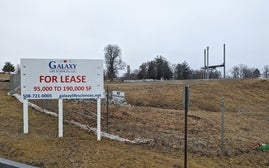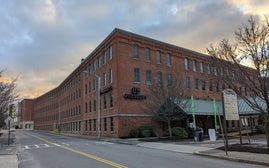Gateway Cities key for continued growth in Bay State
 Craig L. Blais
Craig L. Blais
In 2007, the Brookings Institution and the Massachusetts Institute for a New Commonwealth released a report about the state's original 11 Gateway Cities, calling for a stronger commitment to these communities, recognizing their struggle to attract interest and investment in the shadow of Greater Boston. Since the report's release, the Patrick administration has answered that call, implementing programs to help these communities capitalize on their assets and recognize their potential.
As a community that defines “Gateway City,” Worcester has benefited greatly from the Gateway Cities programs. (Editor's Note: Fitchburg is also an original Gateway City.) In the past five years, the city has received $2 million to upgrade parks, as well as $11 million for various infrastructure projects. Additionally, Worcester has utilized about $817,000 in brownfields redevelopment money, converting blighted sites back into active use. Programs such as these have had a significant impact on Worcester and other Gateway communities.
In April, the Patrick administration announced a new “growth and opportunity” development proposal as another step to sustain and accelerate economic growth. Some key components of this legislation include the creation of an $11-million fund for major redevelopment projects in the Gateway Cities, additional money for housing development and brownfields redevelopment fund at MassDevelopment, and support for collaborative workspace creation. As communities like Worcester continue to feel the fiscal pinch of development, such programs have become critical to attract and encourage private investment and development.
Worcester, like many of the commonwealth's other midsize urban centers, uses its industrial heritage and educational capital to combat the difficult economic times our communities continue to face. The administration's proposal provides a great blueprint to bolster our Gateway Cities. However, our communities must be able to build from it.
Gateway Cities are in a unique position, combating the perceptions that come with older industrial centers while building upon the remnants of that industrial heritage to foster the industries of tomorrow. There's great momentum surging throughout our Gateway Cities that must be captured and nurtured. This can't be done alone; the Patrick administration's growth and opportunity bill provides a tremendous foundation that we hope the Legislature can build upon.
The success of our Gateway Cities is key to Massachusetts' overall success. The administration's proposal provides us with the opportunity to be progressive in our approach to development, strengthening programs to create jobs, gain access to capital for small businesses, provide market-rate and mixed-income housing, and fund the creation of collaborative work spaces.
Worcester has always worked together to support each other in attaining our successes. With the right cooperation and commitment, cities like Worcester promise continuing growth for Massachusetts in a diverse and sustainable environment.
Craig L. Blais is president and CEO of the Worcester Business Development Corp.













0 Comments